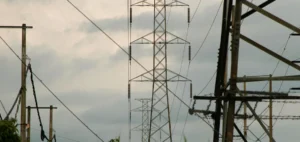Engie, which is in the race for renewable hydrogen, will produce most of its hydrogen abroad in the next few years, where production costs are lower, in order to reach its 2030 targets, the group said on Thursday.
In France, producing one kilogram of this renewable gas, whose use would allow the industry and transport sector to pollute less, currently costs six euros, compared to 2.5 euros in Chile.
The renewable electricity needed to produce this hydrogen is much cheaper.
To remain cheap and achieve its production capacity target of 4GW by 2030, the French energy company will therefore produce in large part abroad, said Thursday its CEO Catherine MacGregor.
A quarter of the production capacity should be located in Europe and the rest in “regions advantaged by nature, where renewable energy is more abundant and much cheaper” such as the Middle East, Brazil or Chile, said Sebastien Arbola, deputy CEO of the group.
This diversification will make it possible “not to be overdependent on a single supplier,” Ms. MacGregor said, while the oil and gas supply difficulties linked to the war in Ukraine have demonstrated the fragility of European energy.
Engie inaugurated the “H2 Factory” in its research and development center in Stains (Seine-Saint-Denis) on Thursday, aiming to improve the performance and reduce the production costs of its “low carbon” hydrogen.
On this occasion, Catherine MacGregor regretted the absence of a “single energy policy” in Europe, where each country has its own regulations.
For Claire Waysand, economist and general secretary of the Engie group, there should be “short-term subsidies” and a regulation “pragmatic enough to be able to develop projects quickly” on European soil, as is the case in the United States.
Grey” hydrogen, generated from fossil fuels, is currently close to three euros per kilogram, compared to two euros per kilogram before the energy crisis.
France has invested nine billion euros in the hydrogen strategy via the France Relance and France 2030 plans.






















